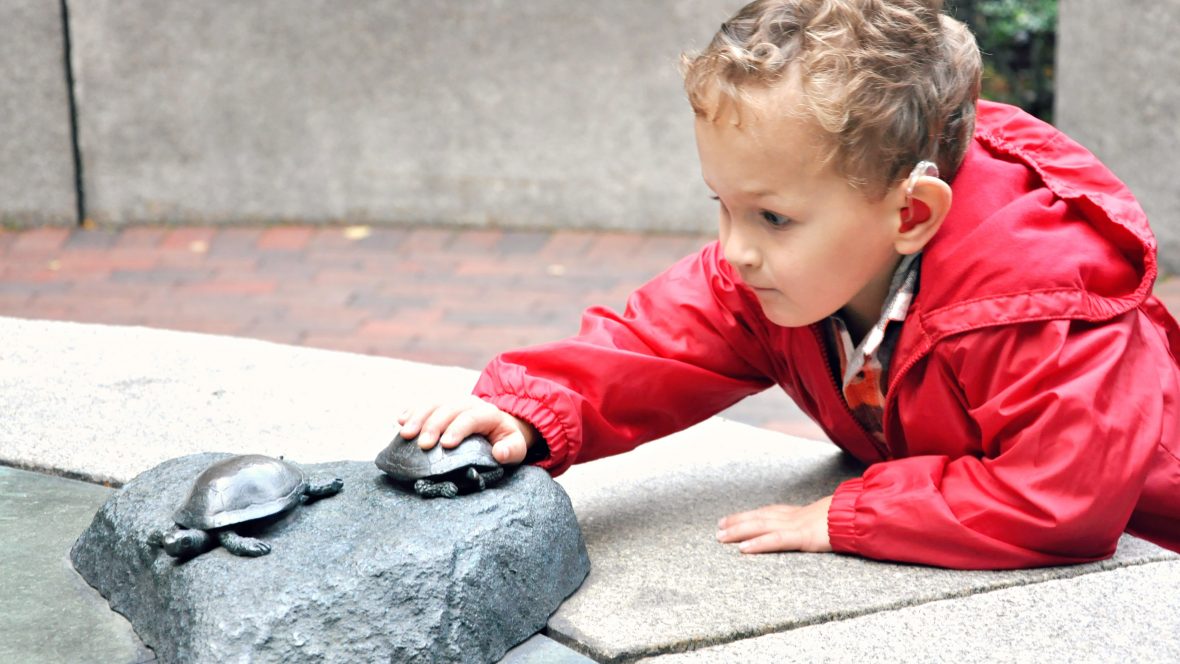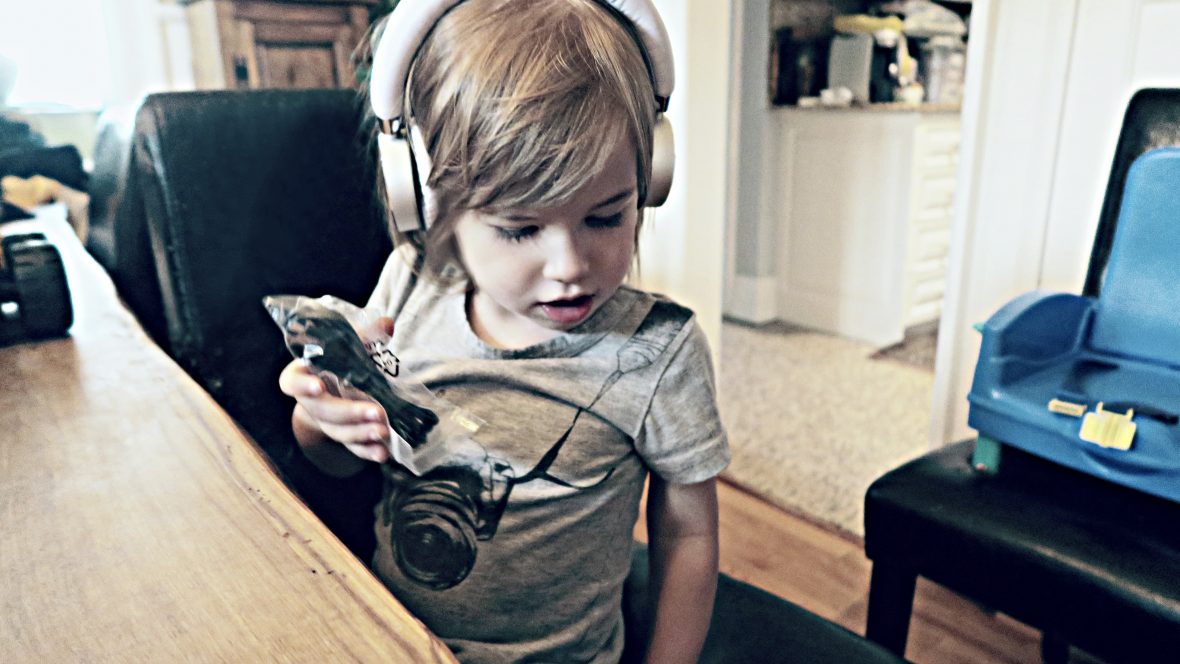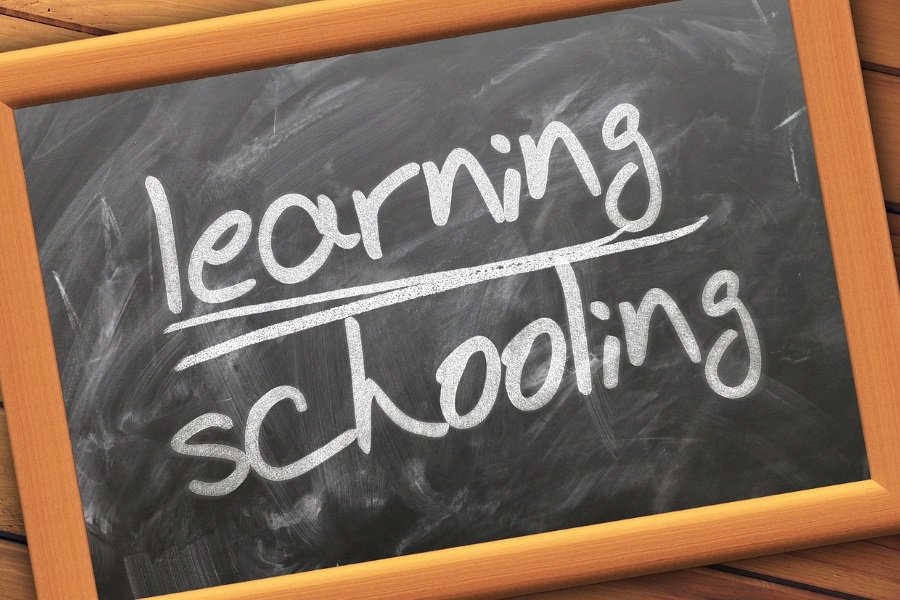How do you react to stressful situations? I will be the first to admit that my anxiety is clearly linked to my inability to effectively manage my emotions during stress. I am famous for catastrophizing and overreacting. Growing up, I was always known as the one who would freak out all the time. Today, I know that I just needed to develop my emotional intelligence. It doesn’t come naturally and it’s something I will continue to work on throughout my life, but if I can give my children these tools much earlier on in life, I hope that they won’t have to freak out as much as I did.
Before his second birthday, my son said his first three syllable word thanks to his brand new hearing aids: Banana. Biologically, his corrected age made him a year and nine months old. He was so thrilled, he said, “banana,” several more times before piling the whole thing into his mouth.
My father doesn’t like to sit still. He’s always outside: tinkering with his tractor, using a chainsaw, or flying in his small airplane. He got his pilot’s license the same year I was born and I grew up riding alongside him in his single engine airplane, peering out the window, yelling at the top of our lungs to communicate with each other.
Over the years, his love for flight hasn’t changed, but now I have to yell to speak to him even when we’re on the ground. The constant exposure to the deafening sound of the engine took its toll and, at 60 years old, he was forced to admit he needed hearing aids.
While travelling this bumpy road on my journey with CRPS and chronic pain, I’ve had a lot of time to think about stuff. It’s not a huge stretch to imagine that it’s difficult and uncomfortable to have someone in your life who has to deal with chronic pain or illness—especially if you’ve never dealt with this kind of thing yourself. It can be hard to know how to act around them or even support them if you wanted to. So, I figured that since I’ve been ‘lucky’ enough to have acquired this knowledge over the past few years, perhaps it would help to share what I’ve learned with anyone who wants to know how to support a friend that’s in chronic pain.
“Here should be a picture of my favorite apple.
It is also a nude & bottle.
It is also a landscape.
There are no such things as still lifes.” ~ Erica Jong
Dear Mr. Whitten,
You probably had no idea.
When you have a child with a learning disability, it’s easy to start looking at the school system as the enemy. And while it’s true that the system isn’t perfect—leveraging the school staff as part of your team will help you all work together towards your child’s success. Here are some ways you can get everyone on board with the same program:
Spring is here, and with it the almost audible hum of energy that comes from children who have been cooped up inside too long. We all know the importance of limiting screen time, but did you know that letting a child experience nature can help alleviate anxiety, depression and attention disorders? The lure of laptops and tablets can make it hard to sell today’s children on the great outdoors. Sometimes they need a little help stimulating their imaginations. Here are seven books to do just that.
I was that mom. You know, the one who has their entire pregnancy and labour experience envisioned in her head ahead of time. The one who won’t use any drugs during delivery, won’t tolerate anyone saying the word “pain,” and has planned the perfect vaginal delivery for their first child. I wasn’t interested in having a c-section! Of course the delivery will conclude in a safe arrival and have picture perfect moments of the new, happy family.
Dyslexia can be described as a learning disability which prevents a person from reading, writing, spelling and even speaking sometimes. It is an impairment that is easy to find in children and it can last throughout the person’s life. The categories of this disability range from mild to severe; the earlier it is treated in a child, the better the results that are obtained. The condition is caused by the brain’s inability to translate or convert images or sensory impulses received from the eyes or ears into useful understandable information or language.
Summer is quickly approaching and the daily SPH facial lotion and lip balm will no longer be enough to combat the sun’s rays. Short of dressing in long sleeves, pants, a large hat and sunglasses… it’s time to find the right sunscreen for your family. Which types are a good fit for your family? How much sunscreen should you apply to keep their skin protected?










